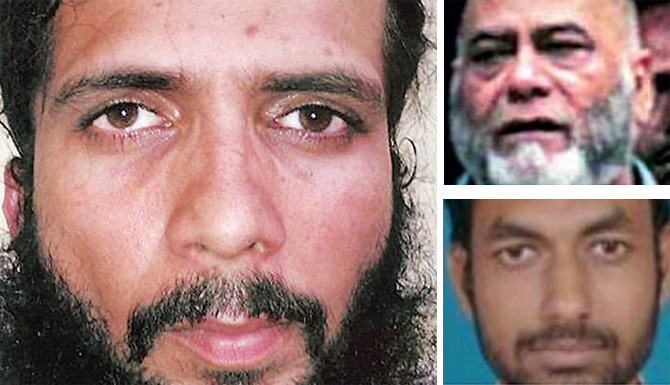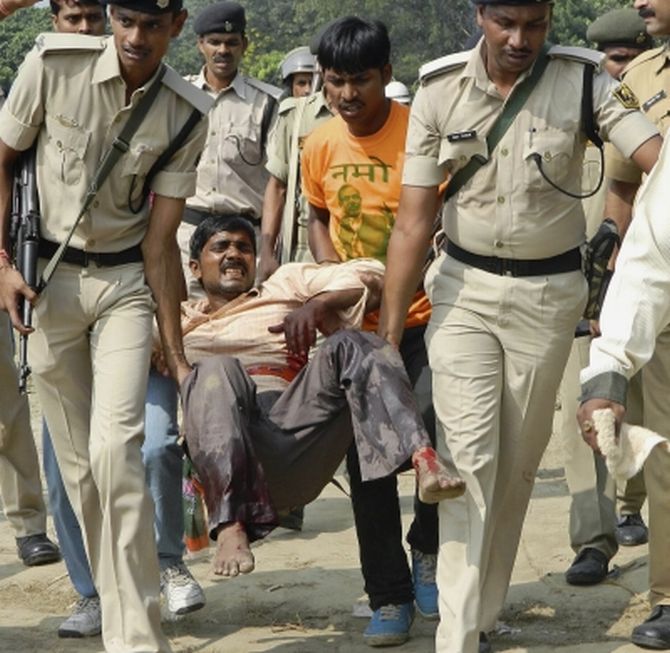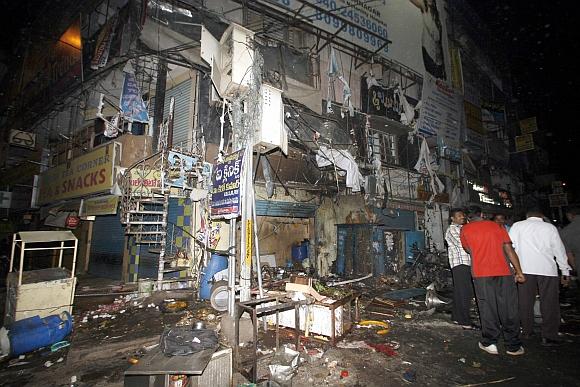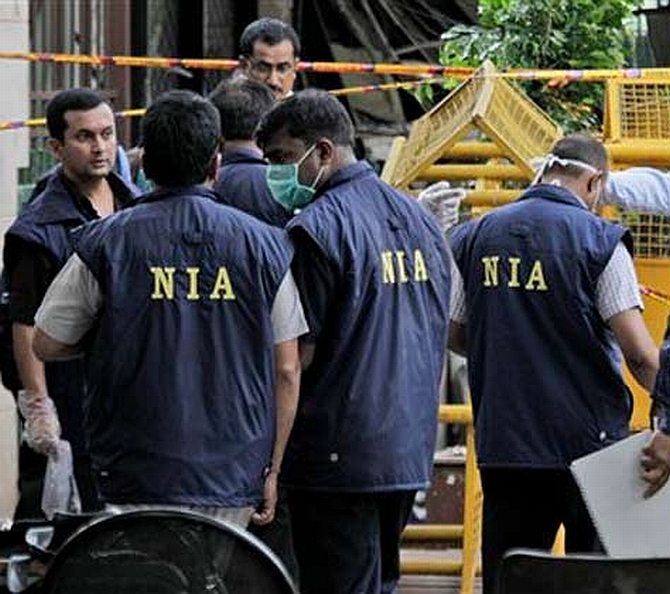Vicky Nanjappa
'When terrorists are questioned they tend to drop big names. But we have to be careful in such cases, as they are not always telling the truth,' a Delhi police officer tells Rediff.com's Vicky Nanjappa.
According to Intelligence Bureau sources, terrorists often get away due to their alleged links with political circles.
In an attempt to pressure investigators, arrested terrorists often throw big political names at them. Indian Mujahideen operatives Faizan Ahmed Sultan alias Faizan Azmi, Yasin Bhatkal, Tehsin Akhtar have all tried this trick after their arrests but in vain, an investigating officer pointed out.
…
Terrorists and their political 'godfathers'
Image: IM's Tehsin Akhtar allegedly masterminded the blasts in Patna ahead of Modi's rally last October.Photographs: Krishna Murari Kishan/Reuters
IM founder Bhatkal and his deputy Tehsin attempted to use their alleged connection with Taki Akthar, a Janata Dal-United leader from Samastipur, Bihar. Taki is reportedly the uncle of Tehsin, who masterminded the Patna blasts serial blasts which occurred in and around the Gandhi Maidan where Bharatiya Janata Party's prime ministerial candidate Narendra Modi addressed a rally last October. Taki Akthar has, however, denied all connection to Tehsin.
Faizan Ahmed Sultan, who was recently deported from Sharjah, told National Investigation Agency officials during his interrogation and even at the time of his arrest that he had worked in a travel agency with with Samajwadi Party leader Abu Azmi in 1985.
Azmi had confirmed this but that it was several years go. 'Faizan worked with me around 1985 in my placement agency which sent people for jobs to Saudi Arabia. After that he opened his own agency in Madanpura and then shifted to Dubai. I am not aware of his recent activities,' Azmi told the Times of India.
…
Terrorists and their political 'godfathers'
Image: The scene after the blasts at Dilsukhnagar in HyderabadPhotographs: SnapsIndia
T Nasir, a suspected Lashkar-e-Tayiba terrorist and an accused in the 2008 Bangalore blast, would often meet up with Abdul Naser Madani, a politician from Kerala, also an accused in the case, the chargesheet filed in the case said. After orchestrating the blasts, Nasir went into hiding at Madani's office. Nasir also confessed that he knew the Muslim leader quite well, according to an investigating officer. Madani was arrested in 2010 in the blasts case and is currently under detention.
IM operative Syed Maqbool, who allegedly recced the Dilsuknagar area in Hyderabad before the blasts in February last year, had once been granted amnesty by the Y S Rajasekhara Reddy government of Andhra Pradesh in a criminal case, on the plea of Majlis-e-Ittehadul Muslimeen leaders including Asaduddin Owaisi.
An IB official told rediff.com, "The link could be direct or indirect, but terrorists often use political connections. There is solid intelligence to suggest that they meet some of these politicians. However, these meetings are not always to discuss terror.”
“The idea is to be seen around the men in power so that the local police hesitates to act against them. This gives them space to carry out terror activities; their political affiliations, they believe, gives them immunity.”
Most operatives try to establish links to political outfits functioning in Kerala, Bihar and Uttar Pradesh. They work at the grassroot level and use this as a shield to carry out illegal activities, IB sources said.
In many cases, local leaders are aware of these nefarious activities. This connection has also helped several operatives evade arrest, said investigators.
…
Terrorists and their political 'godfathers'
Image: The NIA has often complained about political interference during terror investigationsThe NIA has on several occasions complained of local political interference which hampers investigations. “We always have to depend on the local police for logistics and many a time if the governments at the Centre and the state are run by rival political parties, the help is never forthcoming,” an NIA officer told rediff.com.
“When terrorists are questioned they tend to drop big names. But we have to be careful in such cases, as these operatives are not always telling the truth,” a Delhi police officer said.
“Some of these operatives have photographs with politicians. They often try to get away by showing us these pictures and in many cases we find out that the politician is innocent and has no connection with the suspect,” he added.
An IB officer confirmed that political interference in terrorism is not a myth. “It often hampers the investigation of security agencies. There are several reasons for the lack of evidence to prove this nexus in the court. Firstly, it is difficult to establish a direct link between terror operatives and political parties with proof. Secondly, the local police never help the central agencies, as they are governed by their state leaders. Lastly, there are several occasions where the connection has been established, but at the insistence of some politician it is not pursued.”





article